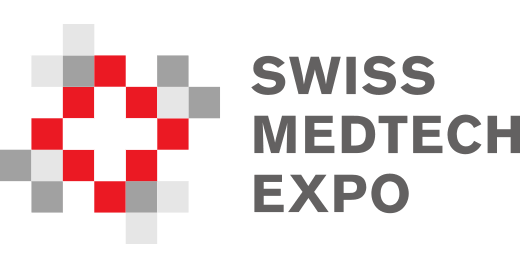About us
Fields of Amorphous Alloys at Medical Technology:
- Traumatology
- CMF
- Spine surgery
- Hip Replacement Surgery
- Chest Wall Reconstruction
Benefits of Amorphous Alloys at Medical Applications:
- Biomechanical Properties: Low young’s modulus, high yield strength
- Certified biocompatibility: No cytotoxicity, cell deformation or ion accumulation
- Durability: High wear and corrosion resistance
- Dynamic fixation and stabilization: High fatigue strength and high elastic limit
- Miniaturization and design improvements: 3D-Printing or injection molding within tight tolerances and reproducible manufacturing
About Amorphous Metals:
Amorphous metals are formed by the shock freezing of metallic melts. The atoms have no opportunity to form a crystalline lattice and solidify in a disordered manner (amorphous). Since the phase transformation from liquid to solid is suppressed in this process, no crystallization nuclei are formed during solidification. These defects in the lattice structure of conventional metals influence the mechanical and electromagnetic properties and lead, for example, to the material showing an increased tendency to corrosion, being brittle or cracking more quickly. By using amorphous metals, these risks can be avoided.

Since amorphous metals do not have lattice structures, no grain and phase boundaries are formed.
The material shows excellent mechanical properties, has above average corrosion resistance, is biocompatible and behaves isotropic.
For this reason, metallic glasses, as amorphous metals are also called, are excellently suited for a variety of high-tech applications and are interesting, for example, for wear-resistant drive components, stable suspensions, diaphragms for sensor technology or housings for consumer electronics. Click here to read more about amorphous metals.
Amorphous Alloys manufactured by Heraeus AMLOY
Due to their unique material properties such as high strength combined with high elasticity, corrosion resistance and biocompatibility, amorphous alloys - also known as bulk metallic glasses or amorphous metals - open up completely new possibilities for engineers. Our portfolio includes amorphous alloys based on zirconium. In addition, we are currently researching alloys based on titanium. Click here to get more information about our alloys.
Processing of Amorphous Metals
Two manufacturing processes under one roof: Heraeus AMLOY is the only manufacturer in the world that offers processing of amorphous metals using both injection molding and 3D printing.
Whether miniaturization, weight reduction, or manufacturing within tight tolerances: Every application has individual requirements. In order to optimally support these requirements in your project, we offer the processing of our amorphous alloys in both injection molding and additive manufacturing. Individually tailored to your needs. Learn more about the advantages and differences of processing amorphous metals by injection molding and 3D printing.
IMTEC - Processing of Amorphous Metals by Injection Molding
In the injection molding process, the alloys are inductively melted under vacuum and injected in the liquid state into a mold where they solidify amorphously. The finished components are thus produced in less than two minutes.
Ideally suited for:
- High quantities
- Manufacturing within tight tolerances
Advantages:
- Automated production process (24/7 possible)
- Very good surface quality
- Alternative to machining or MIM (Metal Injection Molding)
AMTEC - Additive Manufacturing of Amorphous Metals
The high purity amorphous powders from Heraeus AMLOY are specially optimized for additive manufacturing. Even conventional 3D printers process them into larger components with complex geometries. Due to their particularly high strength, components can be modified in terms of design, e.g. in bionic structures.
Ideally suited for:
- Production of small to medium quantities
- Complex geometries and large component dimensions
Advantages:
- Use of the material properties of amorphous metals for weight-optimized design
- Heraeus AMLOY’s unique process competence through in-house material production and printing process development
